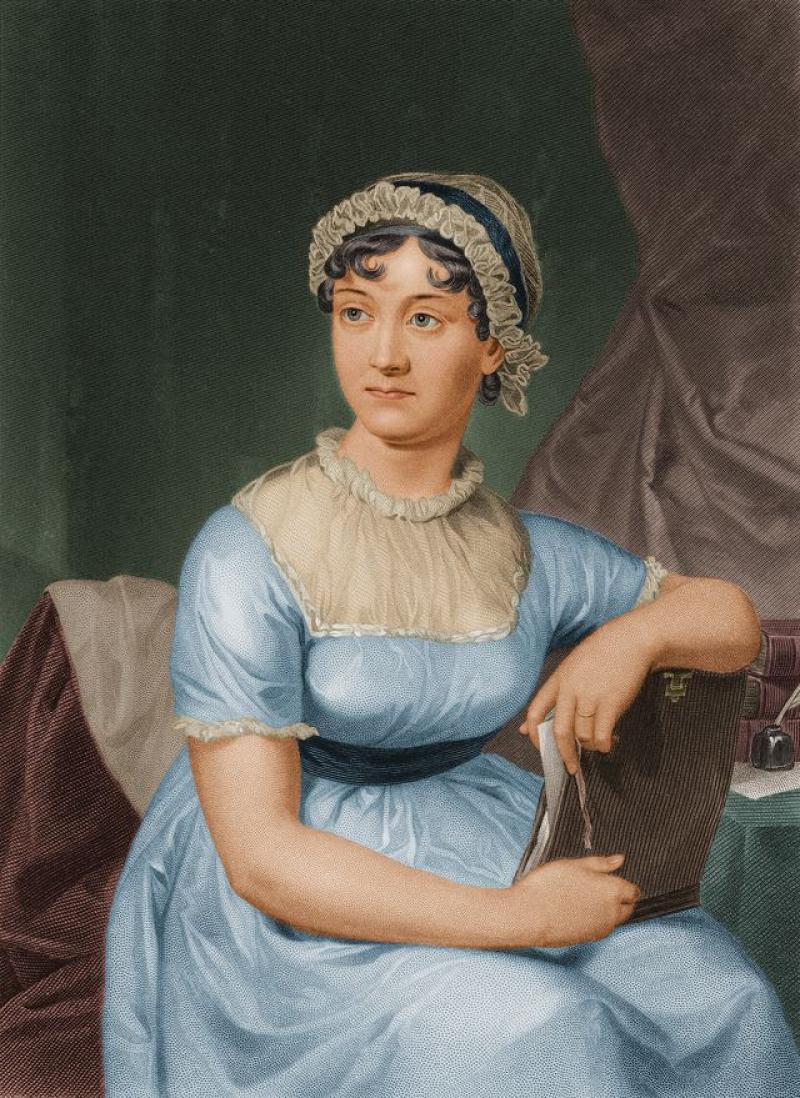New Evidence Suggests Jane Austen Was Poisoned to Death
By: BY CAROLINE HALLEMANN

New Evidence Suggests Jane Austen Was Poisoned to Death

GETTY IMAGES
The death of Jane Austen has long been shrouded in mystery. The now-beloved author succumbed in 1817, at the relatively young age of 41, to an unidentified disease. Over the years, scholars have speculated that she died of cancer or tuberculosis. Others have thought that she suffered from Addison's disease (which tormented JFK as well). But now, new research from the British Library suggests that the famed author died of arsenic poisoning.
The theory stems from the examination of three pairs of eyeglasses believed to have been owned by Austen. The library had these glasses, which were found in a desk belonging to Austen, tested for the first time, and the results suggest that her vision severely deteriorated before her death, possibly due to cataracts. Yesterday, the library shared a blog post further explaining this hypothesis.
If Austen did develop cataracts, said London-based optometrist Professor Simon Barnard, the cause would be accidental poisoning from a heavy metal such as arsenic. "Arsenic poisoning is now known to cause cataracts. Despite its toxicity, arsenic was commonly found in medicines in 19th-century England, as well as in some water supplies."
Crime writer Lindsay Ashford suggested the possibility of arsenic poisoning back in 2011. She pointed to a description of the "unusual facial pigmentation [Austen] suffered at the end of her life," a common trait of victims of arsenic poisoning.
However, as the New York Times explained , not all scholars are buying this theory. Austen expert Janine Barchas referred to this new speculation as a "quantum leap," and the library's announcement as "a smidgen reckless."
If you'd like to draw your own conclusions, the glasses are currently on display at the British Library .

As the digital director for Town & Country, Caroline Hallemann covers culture, entertainment, and a range of other subjects
The Code of Conduct and Terms of Service must be complied with.
Anything posted about current politics or religion not relevant to Jane Austen and/or the topics referred to in the group description above will be deleted as "off topic".





I would hope that that theory is not correct, because dying from poisoning has to be a very painful experience. The waning of a person's eyesight is not exactly pleasant either. I just posted an article about Judi Dench losing her eyesight and mine is not doing so well either these days.
If I recall correctly from her brother's letters to friends, she wasn't actually in pain toward the end. She was just very weak. I imagine for a person who read and wrote as much as Austen did, the loss of eyesight would have been a terrible blow.
Whatever the right story is, she died much too soon. WE are the ones who are the losers, deprived of what she could still have written had she lived and kept her eyesight to a more average age for that era.
Another theory to be considered. But regardless, you are right, Buzz. She died much too soon.
It's a shame she died before finishing Sandition, which has been described as exciting and unusual, different from anything previously written.
It is a shame.
Twisting a line from Hamlet: "She was a woman, take her for all in all, we shall not look upon her like again."
Comments and votes up by four NT members on an article such as this that is of interest to people who are capable of enjoying English literature is pretty good. I expected that it would be pushed off the Front (Home) Page very quickly by those who are not.